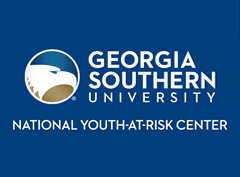Solving for X: 5 C’s to Mathematical Excellence for At-Risk Students
Focused Area
Youth-At-Risk in Urban Settings
Relevance to Focused Area
The proposed session illuminates specific pedagogy shown to effectively engage students in math at-risk schools. For instance, attendees will examine activities which use dance and fast-food purchases to teach understanding of linear algebra. Participants will walk away with ways to engage students by integrating meaningful experiences and morés of students with content standards which lead to enhanced understanding of content and ultimately improved achievement.
Primary Strand
Academic Achievement & School Leadership
Relevance to Primary Strand
When students are presented with meaningful mathematical content which captures their daily experiences, norms, and values, there is a much greater likelihood of students being engaged. Moreover, when those meaningful experiences are artfully integrated with content standards (e.g. Common Core State Standards) coupled with instruction that places them in positions of success, the likelihood of improved achievement significantly improves.
Brief Program Description
Disproportionate numbers of students perceive math as a boring, dry, abstract and hard-to-understand ideas. Participants will be able to use the 5 C Process to more effectively:
- Integrate students’ meaningful experiences and morés with math content standards
- Position students in situations of success
- Deepen students’ engagement with math
- Increase the likelihood of improved achievement.
Summary
Disproportionate numbers of students of color perceive math as a dry subject full of hard-to-understand ideas and abstract concepts. Coupled with poor or uninteresting early school experiences in math, these factors make it an uphill climb to develop a desire in students to engage in math. Participants will interactively explore a 5 C process for engaging students with math including S.M.A.R.T. 5 – a process for helping students successfully complete problem solving tasks. You will be able to better position students for success, deepen students’ understanding of content, and more effectively providing meaningful yet engaging math experiences. Attendees will walk away with sample activities which embody the principles along with immediately implementable tools, techniques, and strategies.
Evidence
The pedagogy described in this presentation emanates from a 5 C Process which is undergirded by the empirical research of the following:
Berry III, R. Q. (2008). Access to upper-level mathematics: The stories of successful African American
middle school boys. Journal for Research in Mathematics Education, 464-488.
Gutiérrez, R. (2008). A” gap-gazing” fetish in mathematics education? Problematizing research on the
achievement gap. Journal for Research in Mathematics Education, 357-364.
Jackson , K. & Wilson, J. (2012). Supporting African American Students’ Learning of Mathematics: A
Problem of Practice. Urban Education, 47,(2) 354 – 398.
Lubienski, S. T. (2001). A Second Look at Mathematics Achievement Gaps: Intersections of Race, Class, and Gender in NAEP Data.
Format
Individual Presentation
Biographical Sketch
Jelani Jabari, Ph.D., is president of Pedagogical Solutions, LLC, and author of Expecting Excellence in Urban Schools: 7 Steps to an Engaging Practice. Since 2004, Pedagogical Solutions has partnered with learning communities throughout the United States and abroad to both enhance pedagogical practice and improve academic achievement. His research interests include engaging pedagogy, effective classroom discourse, and utilizing assessment as an instructional tool. He earned a Bachelor of Arts degree in Economics, Master of Arts degree in Curriculum and Instruction and Doctor of Philosophy in Educational Evaluation and Research.
Jelani has had a stellar career in the educational field which spans more than twenty years. He thoroughly enjoyed more serving more than eleven years as a school teacher and three years as a school administrator in the Detroit Public Schools. He has also served as university instructor and has consulted with the State of Michigan Department of Education.
Jelani wholeheartedly believes the capacities for all children to excel are unearthed when educators expect exemplary performance, position them in situations of success, and inspire them to maximize their potential. Touching lives, positively impacting educators, and enhancing educational experiences for all students lies at the heart of the mission of a team of highly competent and wholeheartedly committed educators. He currently resides in Southeastern Michigan with his wife and children.
Start Date
11-5-2015 1:00 PM
End Date
11-5-2015 2:15 PM
Recommended Citation
Jabari, Jelani Ph.D., "Solving for X: 5 C’s to Mathematical Excellence for At-Risk Students" (2015). National Youth-At-Risk Conference, West (2015-2017). 1.
https://digitalcommons.georgiasouthern.edu/nyar_vegas/2015/urban/1
Solving for X: 5 C’s to Mathematical Excellence for At-Risk Students
Disproportionate numbers of students perceive math as a boring, dry, abstract and hard-to-understand ideas. Participants will be able to use the 5 C Process to more effectively:
- Integrate students’ meaningful experiences and morés with math content standards
- Position students in situations of success
- Deepen students’ engagement with math
- Increase the likelihood of improved achievement.
